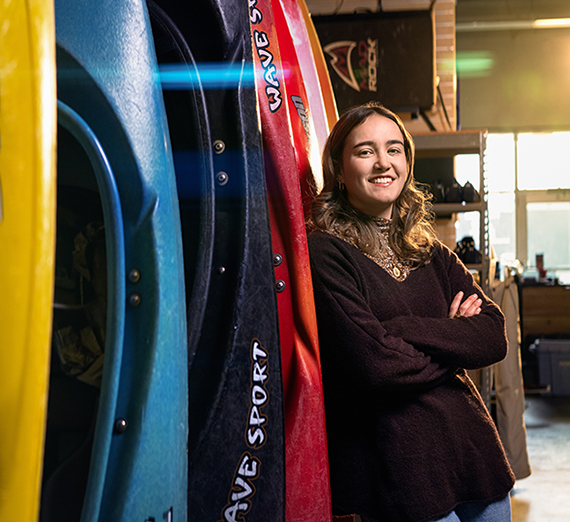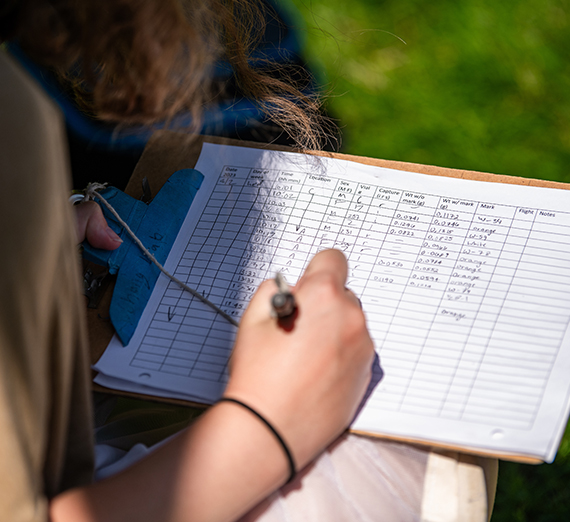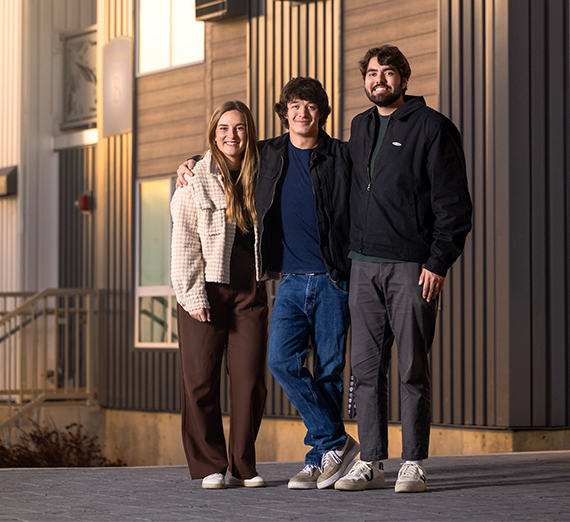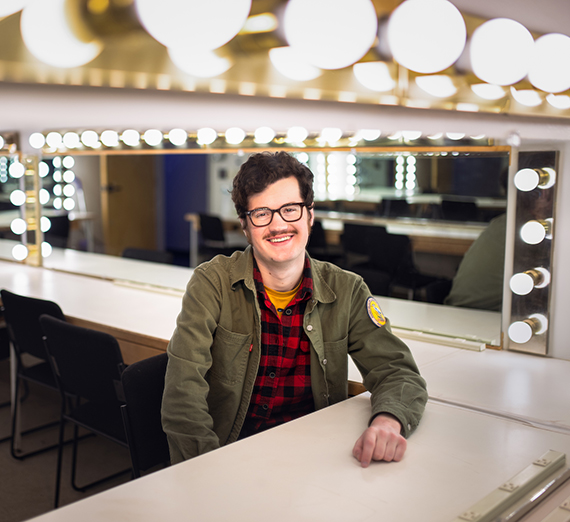Kindness, Nature and Gratitude
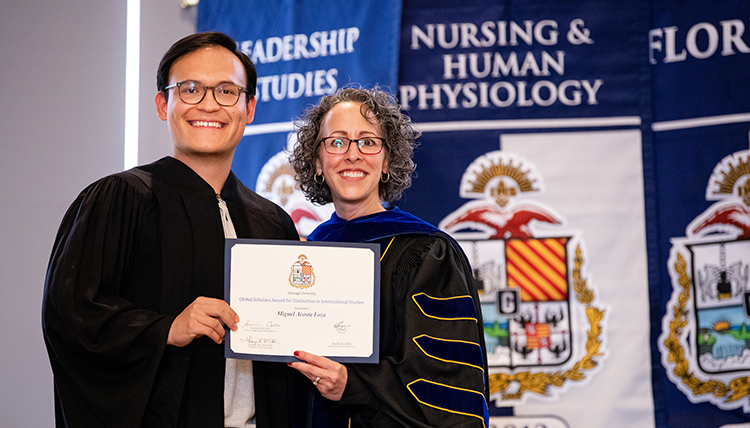
Senior Spotlight: Miguel Acosta Loza
Studies: International relations, with minors in German and the Hogan Entrepreneurial Leadership Program
Hometown: Quito, Ecuador
Moving to the United States for college from Ecuador, Acosta Loza came to Gonzaga University thinking he would be close to the White House. Fortunately, his experience in the other Washington has exceeded expectations.
He’s wrapping up his Gonzaga experience with a perfect GPA, the Global Scholar Award from the College of Arts and Sciences for academic success, and practical leadership experience after his year as Gonzaga Student Body Association president.
“Miguel is an inspiration to many. He is a fierce advocate for justice, a builder of community and a leader who supports and lifts up those around him. It has been my great privilege to work with him this year in his role as GSBA president. He truly embodies the mission and values of Gonzaga.”
What are your plans for the near future?
I got my employment permit approved here for a year, so I’m going to be able to work and put everything I learned into practice. I got a job offer in Denver to work for a hard kombucha company, and that’s pretty aligned with what I want to do in the future — starting my own business in the beverage industry and integrating social purpose into that business. I also applied for a fellowship in D.C. lobbying with the Quakers, which is another interesting path.
I’m not very fixated on anything specific. If it’s meant for me to stay here for another year, I would gladly do that. If it’s meant for me to go to sell hard kombucha in Denver, I’ll do that or really, whatever option seems more feasible. I am also thinking about taking the LSAT during the year and then hopefully applying to some law schools and see how that goes. I am open.
It’s cool that you're able to go with the flow like that. I think a lot of people are set on something particular and unwilling to see other options.
I think it’s part of being a part of a community that’s going to show you where you go, because coming here it was not my intention to be involved in student government at all. Here, as I got involved more, people started directing me in the right path. Having that mentality of openness — ‘oh, this is a new dynamic, let’s see where I fit in and where my talents can be put to use’ —I’m kind of approaching the real world in that way, too.
What do you think of when you think of GU?
I think of first off the community and the people that I’ve been able to meet. I think of treating people with kindness — that’s something that from my first interview, I realized that I was way more than just a number to these people. They were trying to get to know me. They gave me scholarships based on what I’ve done and how it helped my community, how I was intending to use my education to give back to my community.
I also think of nature, because I didn't grow up being connected to nature. I’ve had this conversation with my parents multiple times — when you grow up in the developing world, it feels like you’re surrounded by all this beauty, but all these years of colonization make you feel like you have to go to the city, that concrete jungle where the progress is. So I didn’t get to spend much time in nature. When I came here, well, all my white friends, they would take me hiking. It’s awesome because I got to connect with nature again. I got to appreciate where I come from, and that’s a very unexpected outcome.
How has the Hogan Entrepreneurial Leadership program affected your time at GU?
I grew up in an entrepreneurial household. My dad is a small business owner and I grew up in the midst of machinery moving in the house – operations happening in my living room and I always thought that was the norm.
My dad didn’t get the luxury of going to business school. He knew nothing about business. He just did it because he felt called to also create employment for people, and I saw my dad changing the community because of his business.
I knew I didn’t want to study business, but I still wanted to get some business skills and that’s how I found Hogan.
From the first class [the Hogan program] makes you lose fear, makes you feel more confident in who you are. [You’re doing] 92-second pitches on the most random things and then you’re graded by your classmates on how convincing the pitch was. There’s a lot of very practical things I’ve learned from that program: to build these fake businesses and create teams, building cultures within those teams, getting to apply my passions.
“Miguel Acosta Loza is a true ally, a word I use very carefully, in the work of Tribal Relations at Gonzaga University. Miguel brought tenacity, as well as a thoughtful balance between ambition and humility, intelligence and curiosity, to this work. Gonzaga University will continue to benefit from his contributions well beyond his time at GU”
What is one thing you wish you had done differently?
I think maybe my first couple semesters, I was taking 19 credits for no reason. It was really stressful. These last two years, I’ve been able to do my academics but also explore things outside of academia and get involved in GSBA more and build all these connections with Tribal Relations, be part of the divestment movement, all these things that like ultimately I feel like are just as important to my career as all the cool things that I learned in the classroom. So I would take a lighter credit load.
What else has made these four years special?
It’s been fun to be involved with the international community. I remember the people that I met, who I look up to so much.
I lived in alternative housing called the Ministry Institute – huge, old yellow brick house on Sinto that was a place for discernment for priests, but was also marketed as affordable housing for international students. We ended up in the most eclectic community of 50-year-old grad students living next door to me, Ardit from Albania and Jun from South Korea, Charles from Kenya, Carlos from Venezuela — it's a very vibrant community.
My first couple years I wished I had lived in a dorm, but the more I reflect on my time in that weird setting, I'm so grateful because it was the best way for me to adapt to these new places. These people that I met, they were so empathetic because they had gone through the same thing too. They were great role models for probably the rest of my career here, so I’m very grateful to the Ministry Institute.
“Miguel has contributed greatly to class discussions in international studies courses and his professors have seen him grow over the years not only as a student but also as a person for others. He is keenly aware of global problems and committed to addressing them using his knowledge and understanding of multiple perspectives.”
- Academics
- Diversity & Inclusion
- College of Arts & Sciences
- Hogan Entrepreneurial Leadership Program
- German
- International Studies

